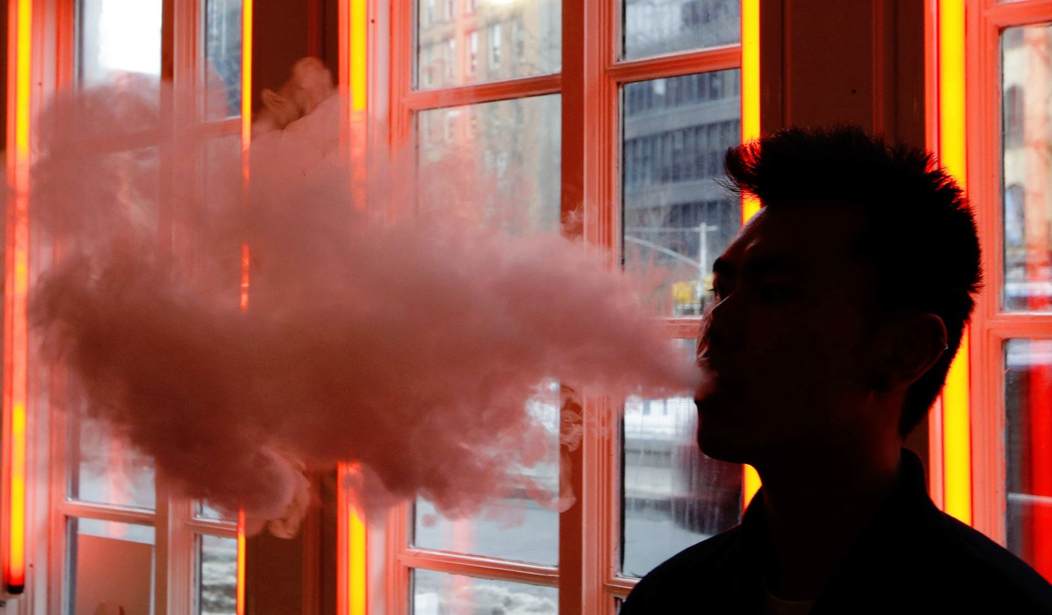Not wanting to stymie the alarmism by acknowledging rapid declines in youth vaping, a handful of U.S. senators are again sounding the alarm on the so-called youth vaping epidemic. A recent letter to top executives of major convenience store chains “strongly encourage[s]” retailers to comply with federal regulations and remove all unauthorized e-cigarette products from their store shelves.
Unfortunately, much like previous efforts from a group of Democratic lawmakers who penned previous letters (including one in 2020 urging a ban on all flavored e-cigarettes), this is another futile attempt that disregards increasing data on youth and adult e-cigarette use in the U.S. In fact, these lawmakers seem to be more on a tirade against Big Tobacco (while exploiting dwindling youth use) and ignoring the tens of millions of U.S. adults who rely on e-cigarettes (authorized or not) to remain smoke-free.
The U.S. Food and Drug Administration (FDA) began officially regulating e-cigarettes in 2016 when the agency issued the deeming regulations. With one stroke of a pen, the FDA essentially determined e-cigarettes to be tobacco products and introduced new pathways to introduce products to market including the premarket tobacco product application (PMTA), or substantial equivalent (SE) pathway.
The different processes can be summarized by whether a product was on the market by February 15, 2007. All combustible and smokeless tobacco products can go through an SE pathway as these products were available on the marketplace in 2007 as they are “substantially equivalent” to previously authorized products.
The PMTA pathway (applicable to all e-cigarette products) requires individual applications for every product (every liquid, size, varying nicotine strength, etc.) that must undergo extensive testing and data research to prove to the agency that it is “appropriate for the protection of public health.”
Recommended
To date, the FDA has authorized only 23 e-cigarette products using the PMTA pathway. Thousands of products remain in limbo, caused by FDA regulatory inaction or judicial orders. Meanwhile, since August 2020 (when PMTAs were due for traditional nicotine e-cigarette products), FDA has authorized 212 combustible tobacco products to be sold in the U.S., including 45 combustible cigarette products. Essentially, since receiving PMTAs, FDA has authorized nearly two combustible cigarette products for every one e-cigarette product is has authorized for retail sale.
Despite alarmism, e-cigarettes are a technological revolt against combustion, the number 1 harm in terms of smoking. E-cigarettes remove the smoke from the cigarette and provide nicotine seekers with a safer alternative that is endorsed by other democratic and high income countries – many with government-funded health care programs. It is now unreasonable to assume that e-cigarettes are more harmful than combustible cigarettes when governments who fund their taxpayers’ health care costs are not only urging and endorsing e-cigarettes to the adults who smoke, but have given more than one million vapor products to its citizens for free.
These lawmakers are advocating for a flawed federal regulatory process that will only lead to increases in cigarette sales. As of 2022, more than 20 million U.S. adults aged 18 years or older were currently using e-cigarettes, which was a 15.7 percent increase from 2021 and represented an additional 2.7 million adults vaping than the year prior. Recently, one large American tobacco company reported in a conference in February that the number of Americans using disposable e-cigarettes increased by more than 60 percent in 2023. More remarkably, of U.S. e-cigarette market, more than half of the products used last year were estimated to be (unauthorized) disposable products.
Conversely (among these Democrat lawmakers’ own states), youth vaping has declined, all the while sales of unauthorized products grew. Between 2019 and 2021, in Illinois (the home state of Sen. Durbin), the percentage of high school students who were currently vaping decreased by 16.1 percent. Among high schoolers in Connecticut (the home state of Sen. Richard Blumenthal), current vapor product use declined by a whopping 60.7 percent. In Vermont, (Sen. Bernie Sanders), vaping among high school students decreased by 39 percent and in Ohio (Sen. Sherrod Brown), high school vaping declined by 32.9 percent between 2019 and 2021.
It should be noted that between 2021 and 2022, outside of Durbin’s Illinois, vaping increased among adults in Connecticut, Ohio, Oregon, and Vermont – which saw a 24 percent increase in the number of adults who were vaping. In fact, among the four states, adult vaping increased on average by 13.3 percent.
It is time for lawmakers to focus on reducing the harms related to smoking among the tens of millions of American adults who still smoke. This letter is another misguided attempt in an anti-vaping crusade that misses the mark on accelerating the rapid eradication of combustible smoke.
While in 2019, it was worthwhile to address the increase in youth use, now, with significant declines, all efforts to stifle access to e-cigarettes only restricts adults who rely on the products to remain smoke-free.
Lindsey Stroud is a Senior Fellow at The Taxpayers Protection Alliance.

























Join the conversation as a VIP Member